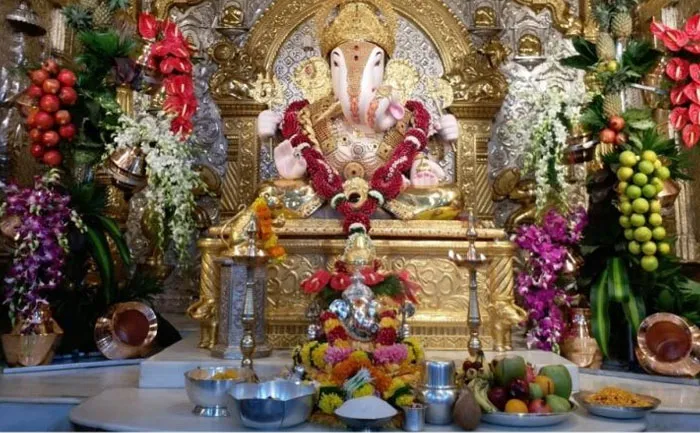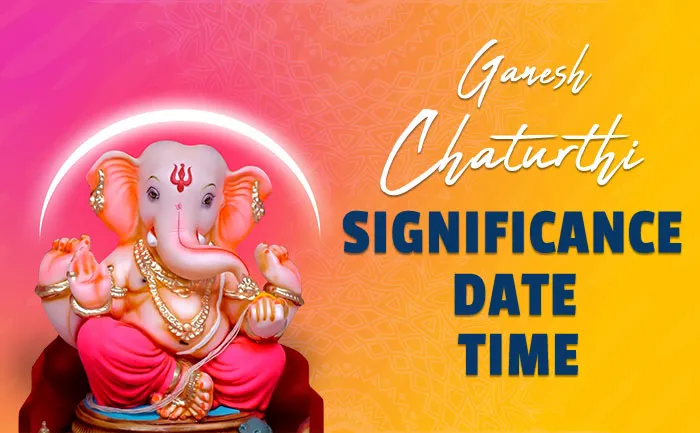Ganpati festival was initially designed by Bal Gangadhar Tilak to provide a cover for freedom fighters in Maharashtra. Although the Marathas used to worship Lord Ganesh prominently, Ganeshotsav did not become a sarvajanik or a community festival till 1892. But today it has gained immense popularity. Preparations to welcome the Lord begin months ago. Lifesize idols of Ganpati are made and worshipped over a span of 10 days and eventually immersed in the ocean with the hope of welcoming him again next year.


The festival is celebrated in many states of the country like Maharashtra, Pune, Gujarat, and Karnataka. The ten-day festival is celebrated to worship Hindu God Ganesha, son of Lord Shiva and Goddess Parvati. Devotees believe that on this day Vihnaharta descends on earth to spend time with them.
As Ganesha loved food, many types of sweetmeats are prepared. But the most loved is the MODAK.
Here is all you need to know about Ganesh Chaturthi 2020:
Ganesh Chaturthi 2020 date and Time:
This year, Ganesh Chaturthi will be celebrated on August 22.
- Madhyahna Ganesha Puja Muhurat – 11:25 AM to 01:57 PM (Mumbai).
- Chaturthi Tithi Begins at 11:02 PM on August 21, 2020.
- Chaturthi Tithi Ends at 07:57 PM on August 22, 2020.
- Ganesh Visarjan is on Tuesday, September 1, 2020.
Ganesh Chaturthi 2020 time to avoid Moonsighting
On the day of Ganesh Chaturthi, devotees are advised not to see the Moon. Therefore, one must not look at the sky between 9:24 AM to 09:46 PM.
In the Hindu religion, there is a belief that people should not view the moon during Ganesha Chaturthi. As the one who sees the Moon on this day gets a Mithya Kalank or the Mithya Dosham. It means that the person can be falsely accused of stealing something.
If someone has by mistake seen the moon on the eve of Ganesh Chaturthi, then there is also a remedy to get rid of Mithya Dosha. One can recite this following Mantra :
Simhah Prasenamavadhitsimho Jambavata Hatah
Sukumaraka Marodistava Hyesha Syamantaka
How many days Ganesh Chaturthi lasts?
The festival of Vinayak Chaturthi and the celebrations can last till 1.5, 3, 5, 7, or 11 days according to the family customs, traditions, and rituals.
Significance of Ganesh Chaturthi:
The significance of the Ganesha Chaturthi festival lies in worshipping Lord Ganesha. People worship Lord Ganesha with supreme devotion to seek his blessings and usher in good fortune, prosperity, success in all their endeavors. It is believed that he takes away all the difficulties and obstacles of the family and the home with him at the time of Visarjan.
Each body part of Lord Ganesha holds a message
- The long ears suggest being a good listener.
- The smallmouth suggests speaking less.
- One hand in the position of blessing gives the message to wish good for everyone.
- Trunk depicts the easy adaptability and high efficacy.
- Instead of 2, he has one tusk, it shows that one should keep the good stuff within and throw the hazardous stuff out.
- Small eyes show good concentration
- Big head is the depiction of “Think Big” philosophy.
The story behind Ganesh Chaturthi:
According to mythology, Ganeshji was created by Goddess Parvati with sandal paste that she used for her bath. She went for a bath asking her Ganesha to guard the door and not let anyone enter. Lord Shiva who had been meditating arrives on the doorstep but is stopped by Ganesha. Not knowing who he is Lord Shiva accidentally chopped off Ganesha’s head that elicited Parvati’s rage. To satisfy his wife, Lord Shiva along with the other Gods fixed the head of a baby elephant on Ganesha’s trunk. Hence Lord Ganesha with the elephant head was created. On this auspicious day of Ganesh Chaturthi, Lord Shiva blessed Ganesha and said that he will be the only deity who would be worshipped ahead of any other God. He would always be worshipped as a symbol of knowledge, wisdom, and strength.
Rituals of Ganesh Chaturthi:
- The worship begins with the priest chanting mantras to invoke life into the idol and the Lord is bathed with sandalwood paste and kumkum. This is known as ‘pranapratistha’.
- Different tributes are offered to the lord that include the traditional ‘modak’.
- Other things like coconut, jaggery, durva (a special type of tri-bladed grass), and red flowers are also used. Traditionally, 21 modaks and 21 durvas are essential for the puja.
- The visarjan takes place on the 11th day by immersing the idol in water. This ‘visharjan’ is preceded by last rites of worshipping the deity with coconut and flowers.
1. Pranapratishhtha: Process of creating an idol. Those who buy idols, perform this ritual while placing the idol in the pandal or in their home, ready for prayers.
2. Shhodashopachara:16 types of prayers are performed during this ritual. This includes providing delicacies, decorating with flowers and others
3. Uttarpuja: This ritual takes place right before the deity is taken from the position and placed ready for a procession towards any water body.
4. Ganpati Visarjan: Immersing the idol into the sea or river. This ritual indicates that God is everywhere and formless. It is also a reminder of the concept that nothing is permanent.
This year due to the COVID-19 Pandemic many major Ganesh Pandal’s have decided to forgo the celebration. They will be holding camps for the service of humanity. One such is Lalbaughcha Raja.
Also Read: Ganesh Chaturthi celebrations: Surat shines with diamond


